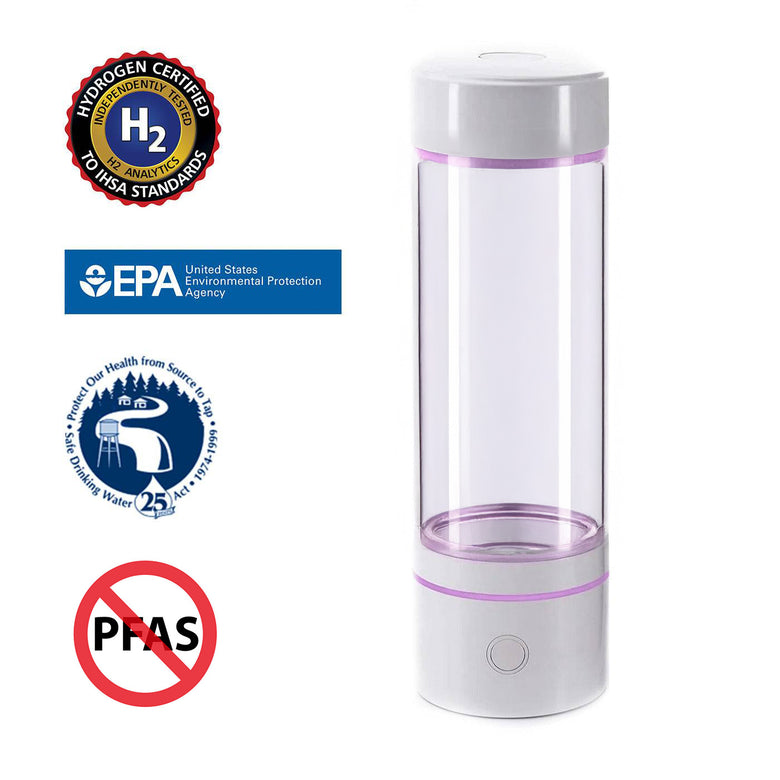Hydrogen Water Taste
Updated
John Smith
Researcher & Writer
Our Commitment to Accuracy and Objectivity
Ocemida is committed to delivering reliable and unbiased information. Our editorial team, comprised of experienced editors and medical experts, meticulously reviews every article and guide to ensure the content is accurate, up-to-date, and free from bias.
Rigorous Fact-Checking Process
To uphold the highest standards of accuracy, we adhere to the following fact-checking guidelines:
Trusted Sources: We only cite reputable sources, such as peer-reviewed journals, government reports, academic and medical associations, and interviews with credentialed healthcare professionals.
Evidence-Based: All claims and data are supported by at least one credible source. Each article includes a comprehensive bibliography with full citations and links to the original sources.
Internal Linking: While we may include internal links to other relevant Ocemida pages for better navigation, these links are never used as primary sources for scientific information.
Expert Review: A member of our medical or scientific expert team provides a final review of the content and cited sources for all articles and product reviews related to medical and health topics.
By following these rigorous standards, Ocemida strives to provide readers with reliable and informative content.
Share with a friend
Key Takeaways
- Hydrogen water has a lighter, smoother taste than regular water, with customer experiences varying from no taste difference to distinct flavor changes.
- Scientific studies show potential health benefits of hydrogen water while maintaining familiar water taste.
- Water quality, mineral content, and hydrogen concentration affect individual taste experiences.
Studies on the taste of hydrogen water have yielded mixed results, with no definitive consensus on whether it tastes significantly different from regular water. A 2018 study reported that participants did not notice any difference in taste between hydrogen-rich water (HRW) and placebo water (PLW)[1].
However, some consumers report subtle differences in taste and mouthfeel:
Clean and pure flavor profile, often attributed to filtration processes used in hydrogen water production rather than the hydrogen itself.
Slightly smoother or silkier mouthfeel, possibly due to tiny hydrogen bubbles creating a subtle texture difference.
Some describe a subtle effervescent quality, though hydrogen water is not carbonated.
It's important to note that molecular hydrogen (H2) is odorless and tasteless. Any perceived differences in taste are likely due to other factors in the water production process, such as filtration or changes in mineral content, rather than the presence of hydrogen itself.
Personal Experience
I tested hydrogen water daily for three months. Here are my observations:
- The water felt smoother in my mouth
- No metallic or chemical taste
- Freshness lasted longer than regular bottled water
- Temperature affected taste minimally
The Taste of Hydrogen Water: Customer Perspectives
Hydrogen water tastes similar to regular filtered water for many people, but customer experiences vary significantly. While some people report no taste difference, others describe distinct changes in flavor, especially at different hydrogen concentrations.
Customer reviews indicate:
- Higher hydrogen concentrations (>1.6 ppm) often produce a lighter, sweeter taste
- Lower concentrations (<1.0 ppm) typically taste identical to regular water
- Individual sensitivity to taste varies significantly
Factors Affecting Taste
The taste of hydrogen water depends on:
- Base water quality
- Mineral content
- Storage conditions
- Production method
- Hydrogen concentration
- Individual taste sensitivity
FAQ
Does hydrogen water have a metallic taste?
No, properly made hydrogen water does not have a metallic taste.
How long does the fresh taste last?
The fresh taste lasts 4-8 hours after opening when stored properly.
Is hydrogen water acidic?
No, molecular hydrogen doesn't change the Ph of the water.
Is hydrogen water carbonated?
No, carbonated water, also known as sparkling water, is water that has been infused with carbon dioxide gas (CO₂) under pressure, resulting in a bubbly texture and slightly acidic taste due to the formation of carbonic acid (H₂CO₃). Hydrogen water doesn't share the characteristics of carbonated water.
Scientific Reference
Recommended Product










































